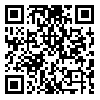Volume 23, Issue 1 (5-2023)
ijdld 2023, 23(1): 1-12 |
Back to browse issues page
Download citation:
BibTeX | RIS | EndNote | Medlars | ProCite | Reference Manager | RefWorks
Send citation to:



BibTeX | RIS | EndNote | Medlars | ProCite | Reference Manager | RefWorks
Send citation to:
Mirzaei-Alavijeh M, Hosseini S N, Niksirt M, Hashemian A H, Jalilian F. Determinants of Treatment Adherence Behaviors in Type 2 Diabetes Patients: An application of Social Cognitive Theory. ijdld 2023; 23 (1) :1-12
URL: http://ijdld.tums.ac.ir/article-1-6196-en.html
URL: http://ijdld.tums.ac.ir/article-1-6196-en.html
Mehdi Mirzaei-Alavijeh1 

 , Seyyed Nasrollah Hosseini2
, Seyyed Nasrollah Hosseini2 

 , Marzieh Niksirt3
, Marzieh Niksirt3 

 , Amir Hossein Hashemian4
, Amir Hossein Hashemian4 

 , Farzad Jalilian *
, Farzad Jalilian * 

 5
5


 , Seyyed Nasrollah Hosseini2
, Seyyed Nasrollah Hosseini2 

 , Marzieh Niksirt3
, Marzieh Niksirt3 

 , Amir Hossein Hashemian4
, Amir Hossein Hashemian4 

 , Farzad Jalilian *
, Farzad Jalilian * 

 5
5
1- Social Development and Health Promotion Research Center, Health Institute, Kermanshah University of Medical Sciences, Kermanshah, Iran
2- Ministry of Health and Medical Sciences, Tehran, Iran
3- Health Education and Promotion Department, School of Health, Kermanshah University of Medical Sciences, Kermanshah, Iran
4- Biostatistics Department, School of Health, Kermanshah University of Medical Sciences, Kermanshah, Iran
5- Social Development and Health Promotion Research Center, Health Institute, Kermanshah University of Medical Sciences, Kermanshah, Iran ,f_jalilian@yahoo.com
2- Ministry of Health and Medical Sciences, Tehran, Iran
3- Health Education and Promotion Department, School of Health, Kermanshah University of Medical Sciences, Kermanshah, Iran
4- Biostatistics Department, School of Health, Kermanshah University of Medical Sciences, Kermanshah, Iran
5- Social Development and Health Promotion Research Center, Health Institute, Kermanshah University of Medical Sciences, Kermanshah, Iran ,
Abstract: (1146 Views)
Background: Control of Type 2 Diabetes Mellitus (T2DM) is influenced by lifestyle. The aim of this research was to determine the predictors of treatment adherence behaviors among T2DM based on Social Cognitive Theory (SCT).
Methods: This descriptive-analytical research was done among 500 T2DM patients in Tehran during 2021. Simple random sampling was performed among patients based their medical records in the Diabetes Control Clinic of Tehran's District Five. The data collection tools were written questionnaire based on the SCT determinants. Data were analyzed using descriptive statistics (frequency, percentage, mean, standard deviation) and analytical statistics (Pearson's correlation and linear regression) in SPSS software version 16. Results: The mean score of treatment adherence behaviors was 56.34 [SD: 10.41], ranged from 16 to 80. The outcome expectations, perceived self-efficacy, and social support accounted for 43% of the variation in the outcome measure of the treatment adherence behaviors. Self-efficacy was the strongest predictor (Beta = 0.430 and P<0.001). Increasing age (ß= -0.126 and P= 0.004), insulin treatment (ß= -0.250 and P<0.001) and smoking (ß= -0.146 and P= 0.001) conversely and having health insurance (ß= 0.181 and P<0.001) were positively predictive of treatment adherence behaviors.
Conclusion: The development, implementation and evaluation of educational interventions based on SCT with emphasis on promoting perceived self-efficacy can lead to useful findings in promoting treatment adherence behaviors among T2DM patients.
Methods: This descriptive-analytical research was done among 500 T2DM patients in Tehran during 2021. Simple random sampling was performed among patients based their medical records in the Diabetes Control Clinic of Tehran's District Five. The data collection tools were written questionnaire based on the SCT determinants. Data were analyzed using descriptive statistics (frequency, percentage, mean, standard deviation) and analytical statistics (Pearson's correlation and linear regression) in SPSS software version 16. Results: The mean score of treatment adherence behaviors was 56.34 [SD: 10.41], ranged from 16 to 80. The outcome expectations, perceived self-efficacy, and social support accounted for 43% of the variation in the outcome measure of the treatment adherence behaviors. Self-efficacy was the strongest predictor (Beta = 0.430 and P<0.001). Increasing age (ß= -0.126 and P= 0.004), insulin treatment (ß= -0.250 and P<0.001) and smoking (ß= -0.146 and P= 0.001) conversely and having health insurance (ß= 0.181 and P<0.001) were positively predictive of treatment adherence behaviors.
Conclusion: The development, implementation and evaluation of educational interventions based on SCT with emphasis on promoting perceived self-efficacy can lead to useful findings in promoting treatment adherence behaviors among T2DM patients.
Keywords: Adherence Treatment, Type 2 Diabetes Mellitus, Perceived Self-efficacy, Social Cognitive Theory
Type of Study: Research |
Subject:
General
Received: 2022/11/20 | Accepted: 2023/03/5 | Published: 2023/05/31
Received: 2022/11/20 | Accepted: 2023/03/5 | Published: 2023/05/31
Send email to the article author
| Rights and permissions | |
 |
This work is licensed under a Creative Commons Attribution-NonCommercial 4.0 International License. |



